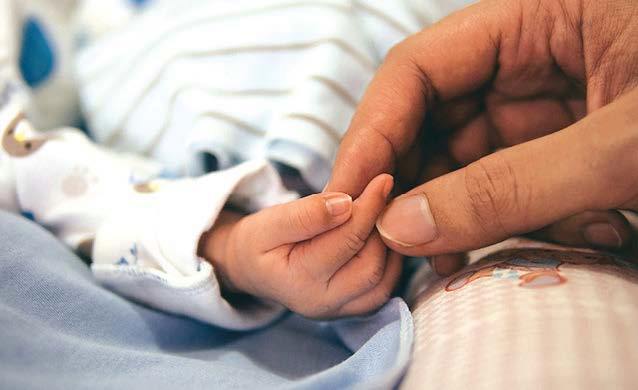DOGUBAYAZIT – Turkey said on Monday 14 people had been confirmed with bird flu infections, but UN health experts said there was no evidence the virus had changed to become more dangerous to people.
The United Nations’ World Health Organisation said the victims appeared to have caught the H5N1 bird flu virus directly from infected birds, as has been happening in southeast Asia. “The total number of cases in our country is 14 confirmed by laboratory tests, and out of those 14, three children have died,” Turkey’s Health Minister Recep Akdag told a news conference.Speaking in Dogubayazit, the village in rural eastern where the children died, Akdag appealed to people to stay away from poultry, and to especially watch children.China confirmed its eighth human infection from bird flu on Monday, the latest victim a six-year-old boy from the central Hunan province who is being treated in hospital.Indonesia said local tests showed a 39-year-old man had died from the virus earlier this month after contact with dead chickens.If confirmed, it would be the 12th death in Indonesia.The newest figures mean that H5N1 avian influenza has killed at least 84 people since 2003 and infected more than 150 – and with the outbreak in Turkey there are signs it could spread into mainland Europe.While the WHO says there is no evidence so far to demonstrate human transmission, experts fear the H5N1 strain will evolve just enough to allow it to pass easily from person to person.If it does, it could cause a catastrophic pandemic, killing tens of millions of people, because humans lack immunity to it.”The initial investigation has found no evidence that the virus has increased its transmissibility or is spreading from person to person,” WHO said on its Web site.”Most persons under investigation are children, often from the same family, and almost all have a documented link to dead or diseased poultry.”WHO experts in Turkey echoed the comments.”At the moment there is no element in this village indicating human-to-human transmission.It’s typically similar to what we have seen so far (in Asia),” Guenael Rodier, heading the WHO’s mission to Turkey, told Reuters Television.Thirteen children were among 23 people also undergoing tests for bird flu in Istanbul, a teeming city of 12 million which is the country’s commercial hub and gateway to Europe from Asia.Health experts said more cases may be reported as worried Turks show up at clinics with flu-like symptoms.”People are very much more aware of H5N1 and the implications of contact with sick and dying birds,” said Dr.Nancy Cox, an influenza expert at the US Centers for Disease Control and Prevention.Cox said it was not clear why there should be such a cluster of cases in Turkey.”We know that there is a seasonality to influenza in birds and just as there a seasonality in humans where the viruses circulate in the wintertime in the cooler temperatures,” Cox told Reuters.”We don’t precisely know what the factors are.It could be it has just taken some time for the virus to spread within the poultry population in Turkey and for enough humans to be in contact with sick and dying birds to be infected.”Ali Hasan Kocyigit, the six-year-old brother of the dead children, was discharged from the hospital on Monday after being confirmed as free of the disease, Turkish television reported.”This should be a lesson to all of the Turkish nation.Everybody should take care of their children much more than before,” said Ali Hasan’s uncle Isa Kocyigit.”We didn’t know this virus before.But now, we lost three children in our family.The last one is living, thank God,” he added as they left hospital in the eastern city of Van.- Nampa-Reuters”The total number of cases in our country is 14 confirmed by laboratory tests, and out of those 14, three children have died,” Turkey’s Health Minister Recep Akdag told a news conference.Speaking in Dogubayazit, the village in rural eastern where the children died, Akdag appealed to people to stay away from poultry, and to especially watch children.China confirmed its eighth human infection from bird flu on Monday, the latest victim a six-year-old boy from the central Hunan province who is being treated in hospital.Indonesia said local tests showed a 39-year-old man had died from the virus earlier this month after contact with dead chickens.If confirmed, it would be the 12th death in Indonesia.The newest figures mean that H5N1 avian influenza has killed at least 84 people since 2003 and infected more than 150 – and with the outbreak in Turkey there are signs it could spread into mainland Europe.While the WHO says there is no evidence so far to demonstrate human transmission, experts fear the H5N1 strain will evolve just enough to allow it to pass easily from person to person.If it does, it could cause a catastrophic pandemic, killing tens of millions of people, because humans lack immunity to it.”The initial investigation has found no evidence that the virus has increased its transmissibility or is spreading from person to person,” WHO said on its Web site.”Most persons under investigation are children, often from the same family, and almost all have a documented link to dead or diseased poultry.”WHO experts in Turkey echoed the comments.”At the moment there is no element in this village indicating human-to-human transmission.It’s typically similar to what we have seen so far (in Asia),” Guenael Rodier, heading the WHO’s mission to Turkey, told Reuters Television.Thirteen children were among 23 people also undergoing tests for bird flu in Istanbul, a teeming city of 12 million which is the country’s commercial hub and gateway to Europe from Asia.Health experts said more cases may be reported as worried Turks show up at clinics with flu-like symptoms.”People are very much more aware of H5N1 and the implications of contact with sick and dying birds,” said Dr.Nancy Cox, an influenza expert at the US Centers for Disease Control and Prevention.Cox said it was not clear why there should be such a cluster of cases in Turkey.”We know that there is a seasonality to influenza in birds and just as there a seasonality in humans where the viruses circulate in the wintertime in the cooler temperatures,” Cox told Reuters.”We don’t precisely know what the factors are.It could be it has just taken some time for the virus to spread within the poultry population in Turkey and for enough humans to be in contact with sick and dying birds to be infected.”Ali Hasan Kocyigit, the six-year-old brother of the dead children, was discharged from the hospital on Monday after being confirmed as free of the disease, Turkish television reported.”This should be a lesson to all of the Turkish nation.Everybody should take care of their children much more than before,” said Ali Hasan’s uncle Isa Kocyigit.”We didn’t know this virus before.But now, we lost three children in our family.The last one is living, thank God,” he added as they left hospital in the eastern city of Van.- Nampa-Reuters
Stay informed with The Namibian – your source for credible journalism. Get in-depth reporting and opinions for
only N$85 a month. Invest in journalism, invest in democracy –
Subscribe Now!








